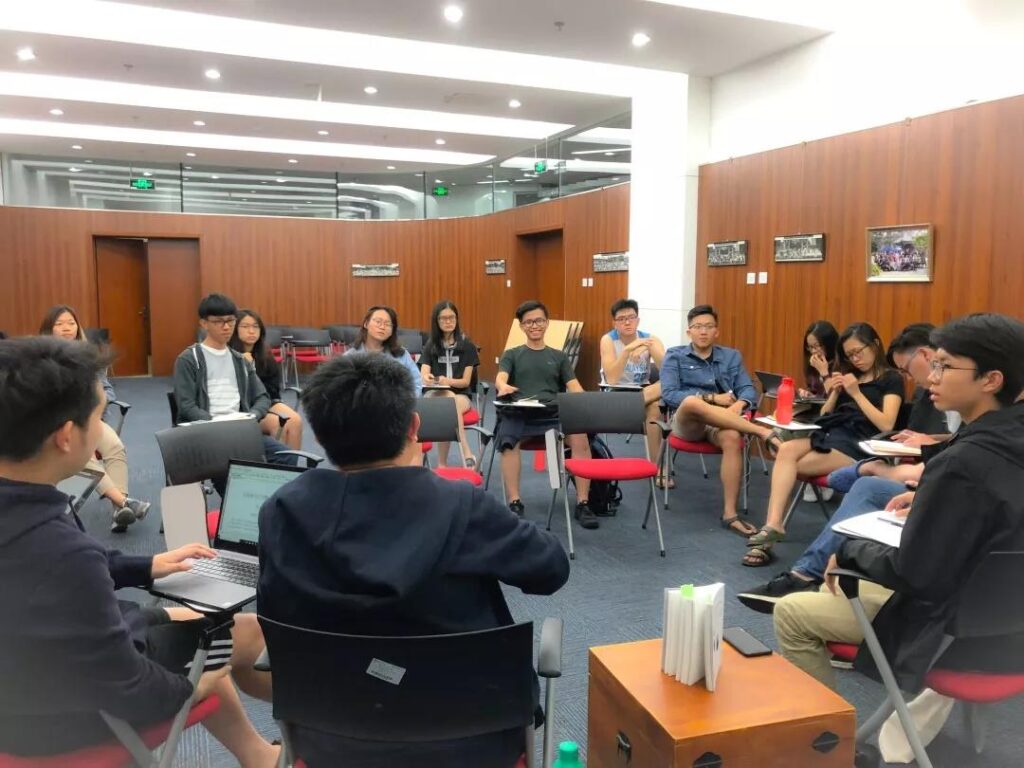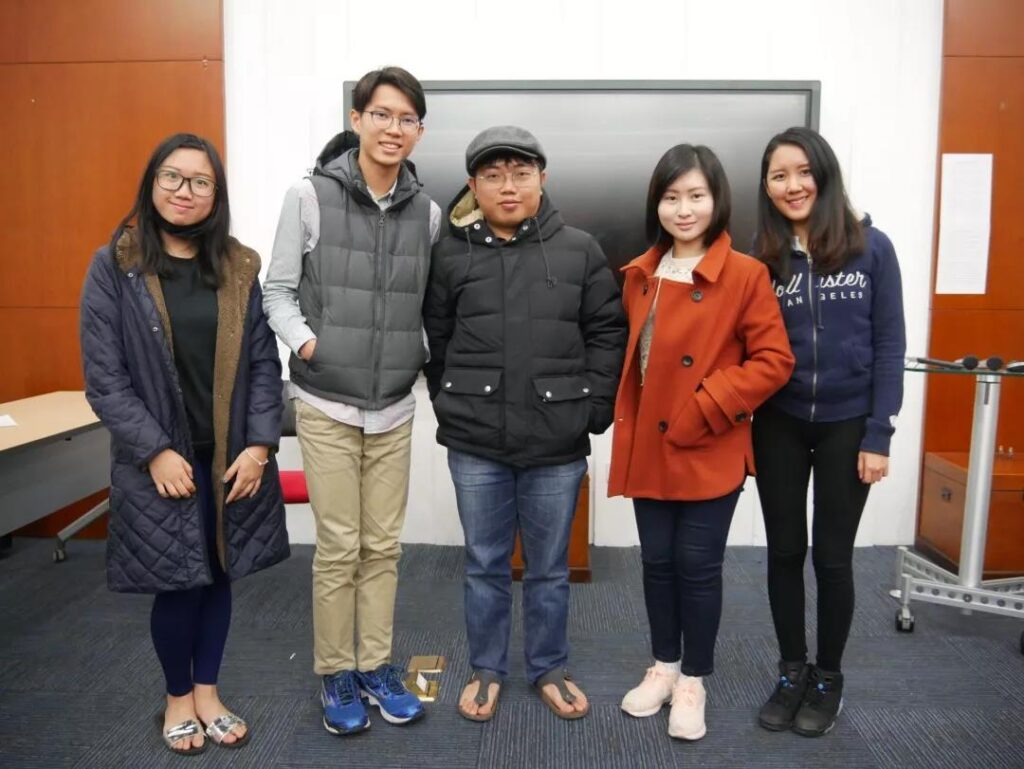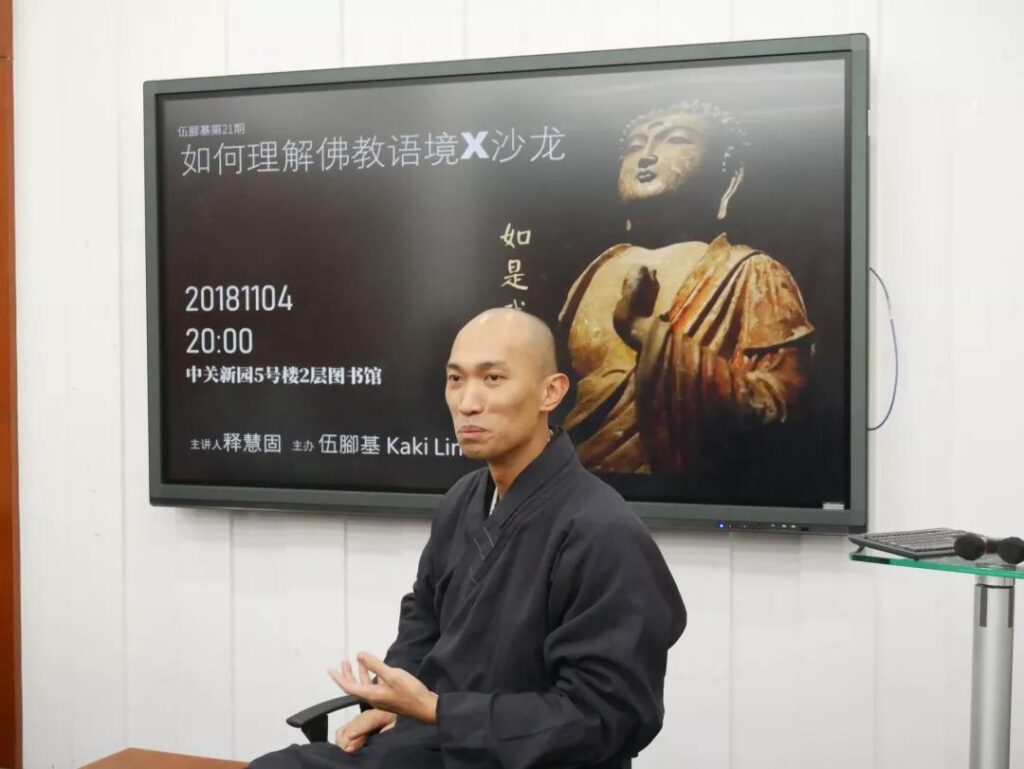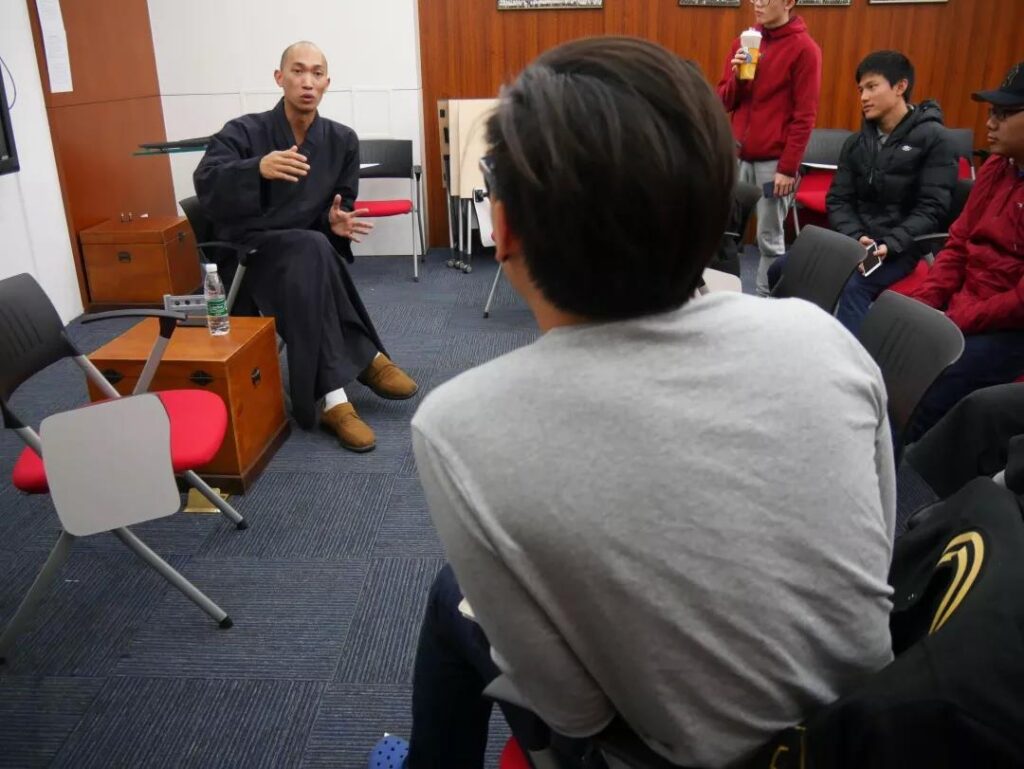
Shuttle through the Two Cities to Meet in Books – Wu Jiao Ji
TOPIC
2019.03.10
Among the thousands of Peking University students, there are a group of like-minded Malaysians. Despite their heavy workload, this group of people will still squeeze time out of their busy schedules to interact with each other and expand their knowledge. Such a group of people gathering together has led to the birth of a book club, Wu Jiao Ji.
The Past and Present of the Club
It all started from the discussions between a few friends from different majors. Given their different interests, they can’t help but talk about all kinds of topics when they meet up in their leisure time – sometimes it’s about economics and politics, sometimes it’s about education and culture. One day, they thought: if more people join the discussion, will it spark more insights and exchange of ideas?
Thus, in the fall of 2017, they organized a book club to gather more like-minded Malaysian students to share their professional knowledge, provide different perspectives, and invite more collisions of ideas.
After a year of hard work, this book club has a clearer positioning and development in the fall semester of 2018, and it will be introduced using the name, “Wu Jiao Ji(伍脚基)”. “Wu Jiao Ji(伍脚基)” is a homophone of “Wu Jiao Ji(五脚基)”, which is the Chinese translation of Malay word “kaki lima”. Five-foot way is a unique architectural style in the Nanyang region. In the early years, laws and regulations stipulated that the corridors under private houses and shops must be five feet wide. This space is privately owned by each residential shop, but shared with pedestrians. Under the same concept, Wu Jiao Ji declared that the book club is a neutral open space between private and public, intended to gather people with ideas and stories to share what they want to express and communicate with everyone who gathers here.
Its Purpose of Existence
Wu Jiao Ji’s vision is to gather Malaysian students from Peking University to share knowledge. Sharing knowledge is not only good for oneself, but also good for others. When everyone shares their professional knowledge, besides inviting participants from other majors to understand more about the subject, the speaker will gain a deeper understanding of the subject and consolidate their knowledge structure of related fields. This is because only when the speaker has fully understood the content, he/she can explain it effectively to a beginner. In addition, the various questions raised by the participants during the discussion can prompt the participants to ponder. This is a mutually beneficial two-way learning process for both the speaker and participants.
Wu Jiao Ji is also an invisible platform for Malaysian students to discuss current affairs. These people were born and raised in Malaysia, before going to Beijing, China to further their studies. The dual identities of “Malaysian” and “Peking University students” gave them an extra perspective to think about the issues in both countries. They began to think about various cultures and systems in Malaysia. Many opinions and views were brought up amidst the intense discussion and exchanges. These comments, regardless of whether they are good or bad, have a certain value and should be included in the examination of Malaysia’s diverse backgrounds. With such an environment, Wu Jiao Ji has indirectly encouraged these students to pay more attention to the status quo and development trend of Malaysia.
At present, Wu Jiao Jie’s participants are all Malaysian students from Peking University, most of them are undergraduates, and they come from all majors and grades. One of Wu Jiao Ji’s main committee, Chen Jing Qian, expressed that he hopes more masters and doctors can participate in Wu Jiao Ji in the future to enrich the book club discussions. Moreover, although the current Wu Jiao Ji’s members are mainly Malaysian students, if there are international students from other countries who are interested in this book club, Wu Jiao Ji will welcome them with open arms.

The Way the Activity Is Conducted
At first, this organization followed the traditional book club model and asked the participants to read a book a week for interdisciplinary exchanges. The topics discussed in each semester would involve politics, society, history, etc. Nowadays, Wu Jiao Ji has undergone a major transformation. Not only has the name of the organization been changed, but also the organization’s activities have been greatly modified.
There are three main types of activities: salons, book club discussions and workshops. In a salon, a speaker is invited to talk about a topic, and a Q&A session is conducted after the speech. For example, Wu Jiao Ji once invited the Treasurer of Peking University Alumni Association to share insights about investment in Malaysia. The book club discussion is a continuation of the initial operation model of Wu Jiao Ji which is to provide some articles or other materials for everyone to read before the event, and then share their thoughts or ask questions during the event. One of the books they discussed was “Impy, Ethnicity, Marketization—University in a Dilemma” which was about education in Malaysia; Workshop is another new form of activity which is mainly for sharing practical skills. Experienced students lead everyone to learn together and then present their results in turn. Wu Jiao Ji once organized a business case analysis workshop. A Peking University senior proposed a scenario and played the role of an investor. The other students tried to persuade the investor and they analyzed the pros and cons of the methods used afterwards.
Thanks to the assistance of the Malaysian Students’ Association of Peking University (MSAPKU), Wu Jiao Ji’s event venue is no longer “to be confirmed”, but it has the Zhongguan Xinyuan Library as a fixed gathering place. The students in charge of organizing the Wu Jiao Ji event have made a lot of effort in inviting speakers. They will try their best to integrate topics of different elements to avoid repetition and boredom. They will use the speaker’s background to decide the theme of each activity and allow the speaker to decide the content themselves.


Why do they Persist?
From the initial reading club to today’s Wu Jiao Ji, the organization’s founder Deng Shi Xuan, who has been with Wu Jiao Ji for more than a year and works hard to operate it, said: “I like small talk, but I think small talk can also be very informative. I want to have more meaningful conversations and listen to other people’s ideas, so I started this organization. This is also a platform for Malaysians to have academic dialogues.”
Chen Jing Qian said: “Wu Jiao Ji always brings surprises to people, and often has unexpected additional benefits. Sometimes the topic of a seminar seems dull, but after listening to them, you may discover that any field or any subject has unlimited potential worth exploring.”
Challenges and Responses
It is not easy to operate Wu Jiao Ji. Shi Xuan and Jing Qian shared some of the challenges they faced. First of all, in terms of human resources, the six founders each have their own academic burdens due to the heavy workload in Peking University. In many cases, some arrangements or publicity work cannot be handled in time, so they need to constantly coordinate with each other and help each other to solve problems.
In terms of speakers, they often cannot find people who are willing to share, or experienced teachers, so they will pay attention to the people around them or new friends in their daily life. They often find that many people actually have knowledge or ideas worth sharing with everyone.
In terms of participants, many students do not have time to read the books designated by the book club discussions in advance due to their busy schedules, thus making the discussion less effective. In order to help participants understand the relevant content, the organizer will conduct a guided reading session before the discussion. They also adjust the amount of reading materials appropriately, by only discussing a certain chapter of the book and send the discussion questions to the participants in advance so that everyone has plenty of time to think. These countermeasures are put in place to avoid participants feeling stressed and can help them to gradually cultivate a reading habit.
Future Outlook
“Sharing the happiness is better than enjoying it alone” Wu Jiao Ji plans to launch a weekly newsletter in the future to summarize the book club discussions and share with other people. The founders hope that Wu Jiaoji can be “passed on from generation to generation”, and that Wu Jiao Ji can inspire students from other universities in Beijing to organise a book club as well. They hope that Malaysian students scattered around Beijing will be brought together through these academic exchanges.
Although Wu Jiao Ji is a very young organization, it has a clear goal and direction: to connect Malaysians in Peking University through knowledge. As Confucius said: “To learn something and often practice it – it is a pleasure, isn’t it? To have friends (who have the same ambition as yours) coming from far away and talk to each other – it is a delight, isn’t it?” Wu Jiao Ji provides a platform for us to meet friends who are willing to study together and communicate with each other. This is lucky! Not only can you develop personal reading habits, you can also learn to express opinions and share knowledge. In Wu Jiao Ji, if you are willing to share, someone will be willing to listen, and if you are willing to accept other people’s ideas and opinions, you will be a person of rich knowledge!
Reporter | Yi Ting
Interviewee | Lusen, Jing Qian
Original Author | Chen Qian Jing, Yi Ting
Proofreader | Luo You Rong
WeChat Article Layout | Chen Pei Xin
Web Article Layout | Wong Xiangyu
This web article is the English translation of the original article.
Editorial Board of The Voice of Beijing, 1st Issue, 2019
Edited and published by | AMSIB
Coordinator | Li Wei Ai, Vivian, Huang Xiao Qing
Producer | Li Jun Jin
Secretary | Wen Shi Yun, Wang Xuan Ming
Leader of the Interview Team | Cao Yi Wen, Yvonne
Reporter | Feng Qi Yang, Dong Jia Ren, Huang Jing Yi, He Jing Ling, Zhong Yi Wen, Liu Wei Yu, Huang Shi Xuan
Editor | Luo You Rong
Writer | Zhong Yi Wen, Chen Qian Jing, Zhou Yi Kang, Huang Jin Tai, Huang Mei Qi, Nur Aiin Binti Muhammad Azhar
Art Director | Yang Wen Fei
Art Editor| Chen Pei Xin, Xu Yi Ting, Yang Qian Hui, Zhou Yi Kang, Huang Mei Xuan, Huang Jin Tai



